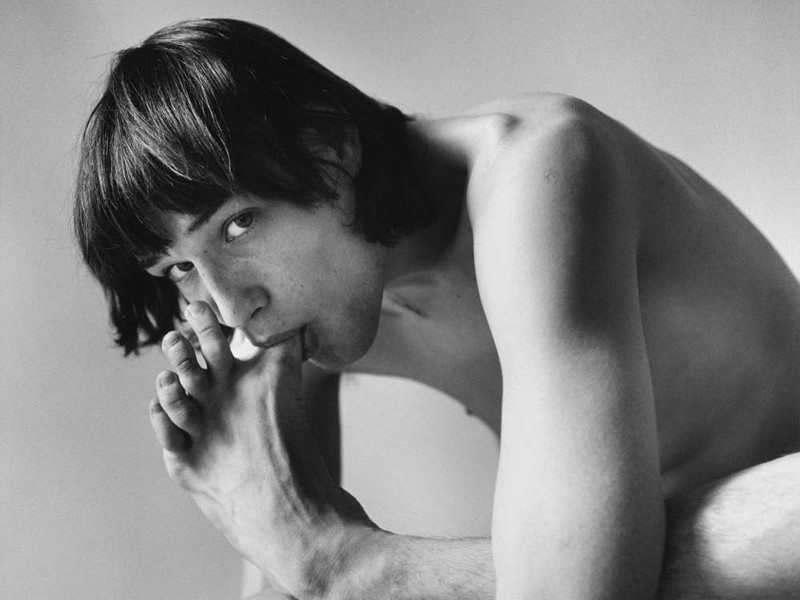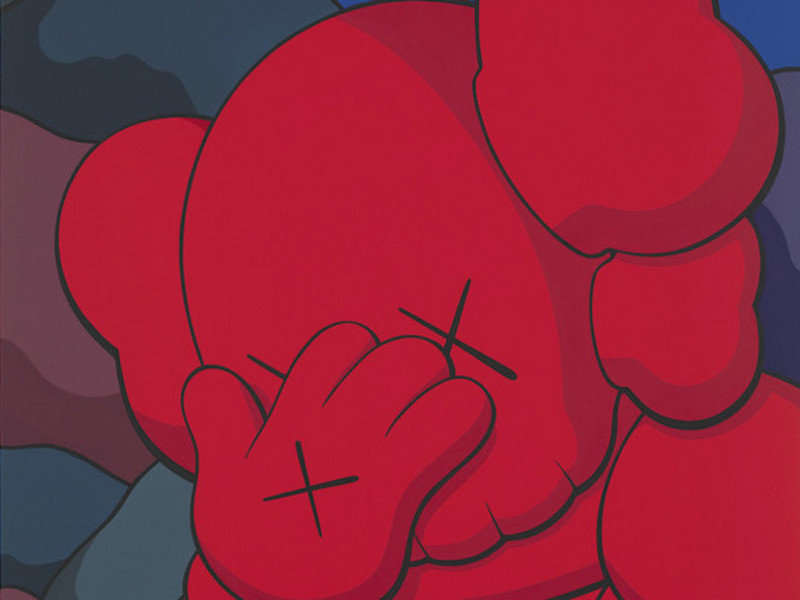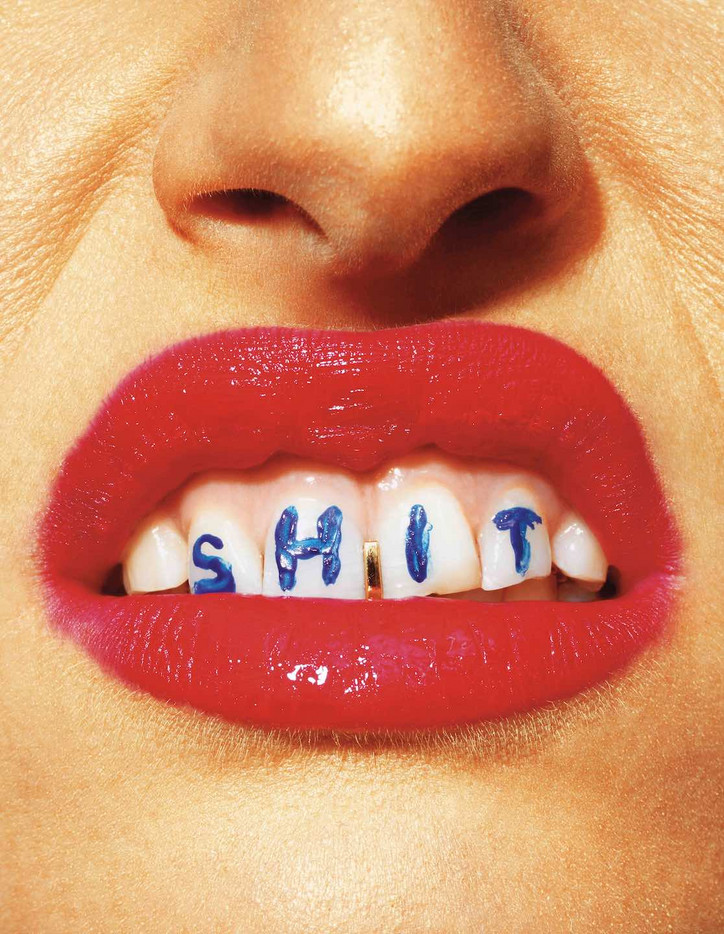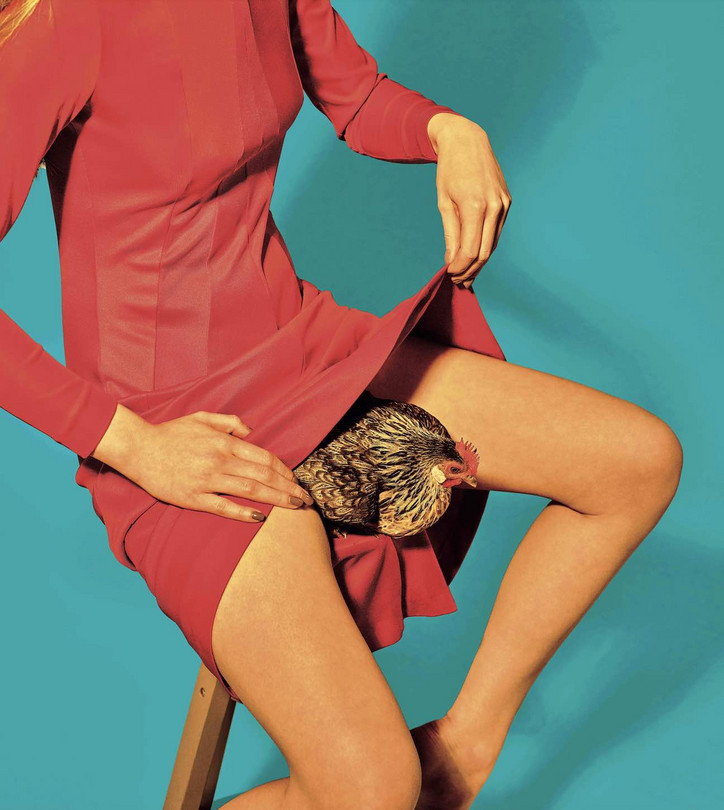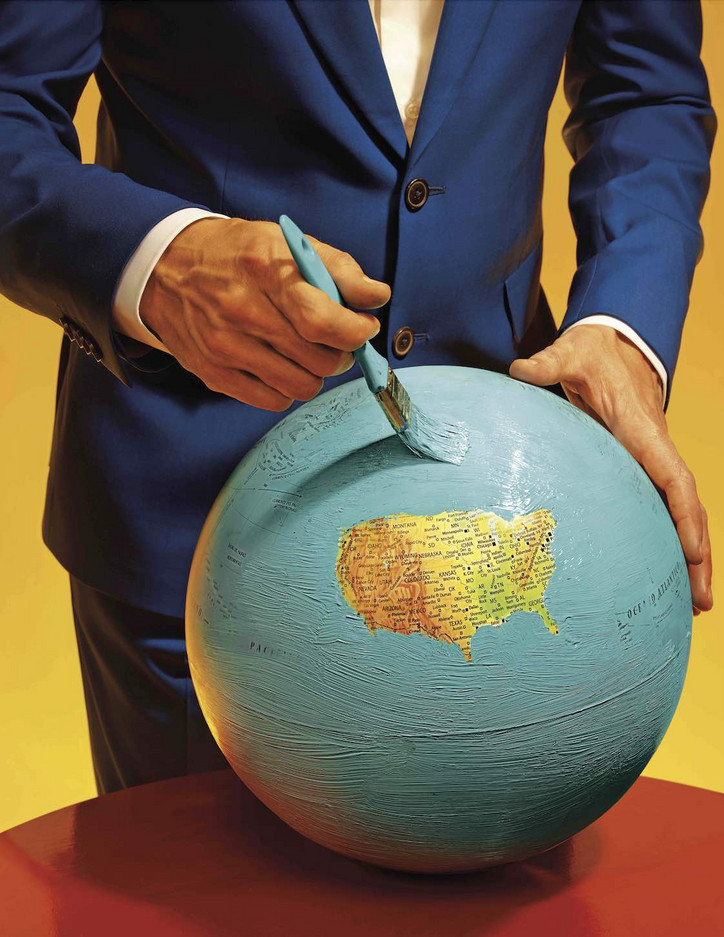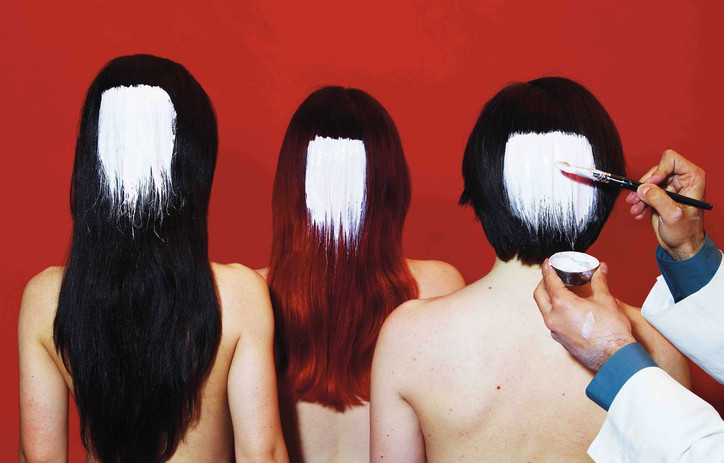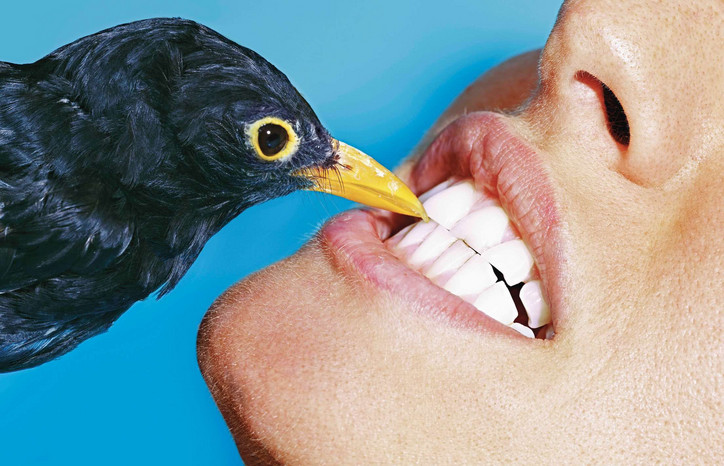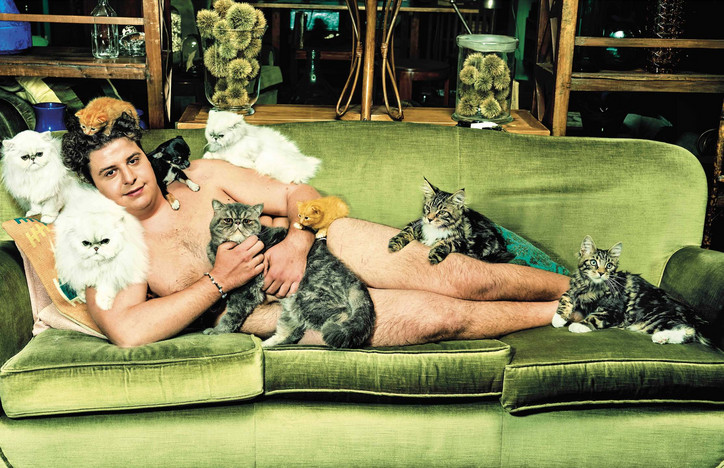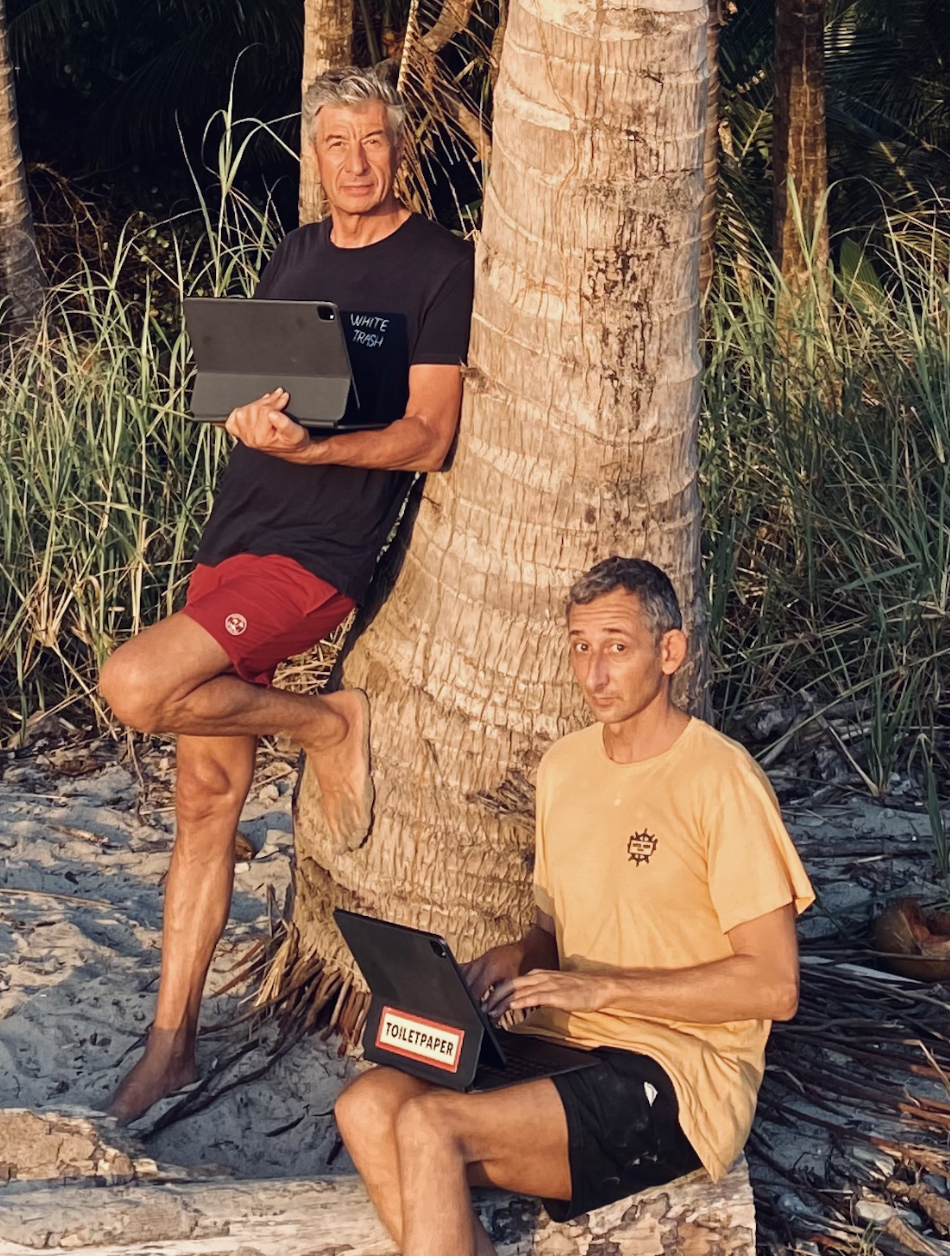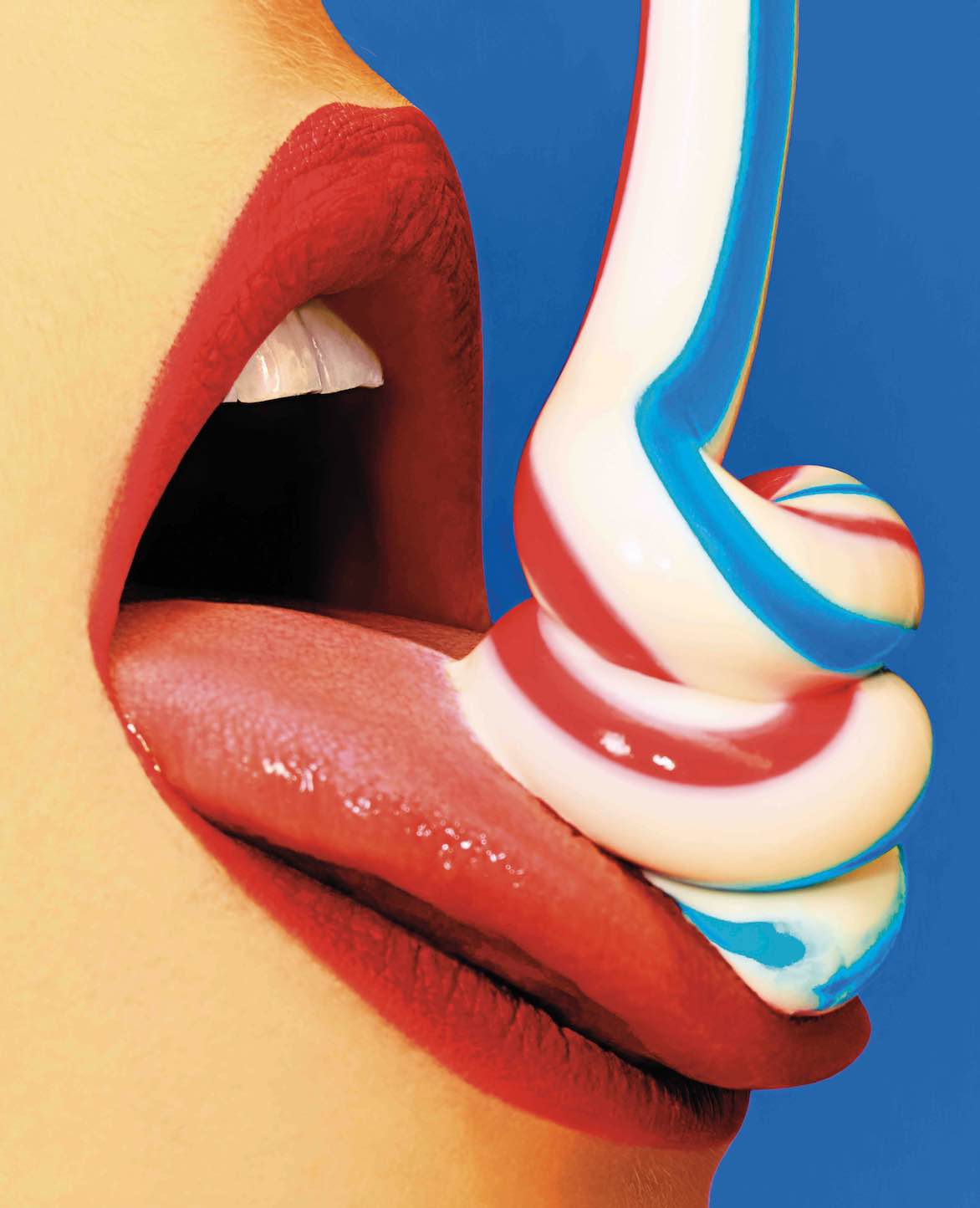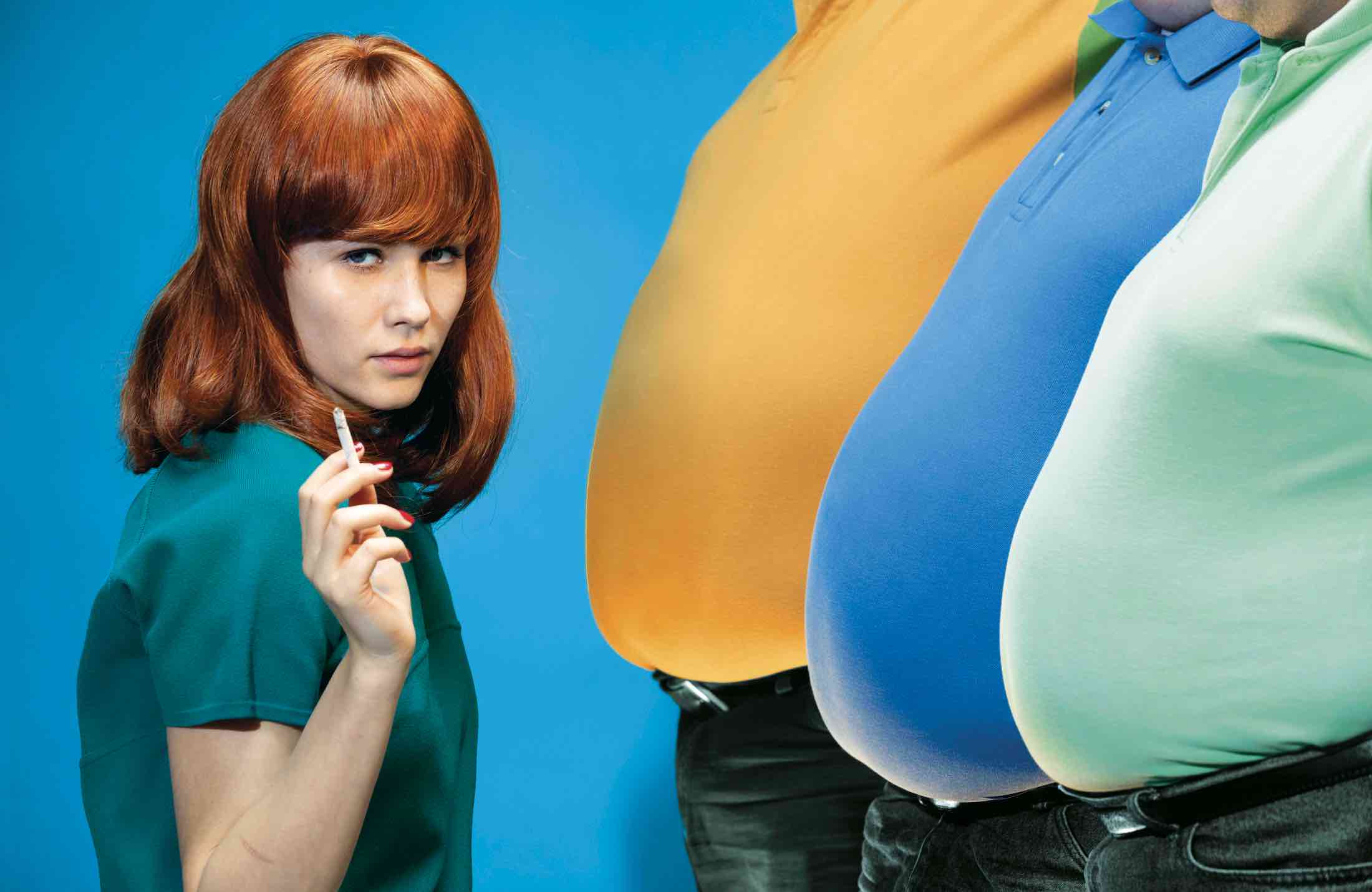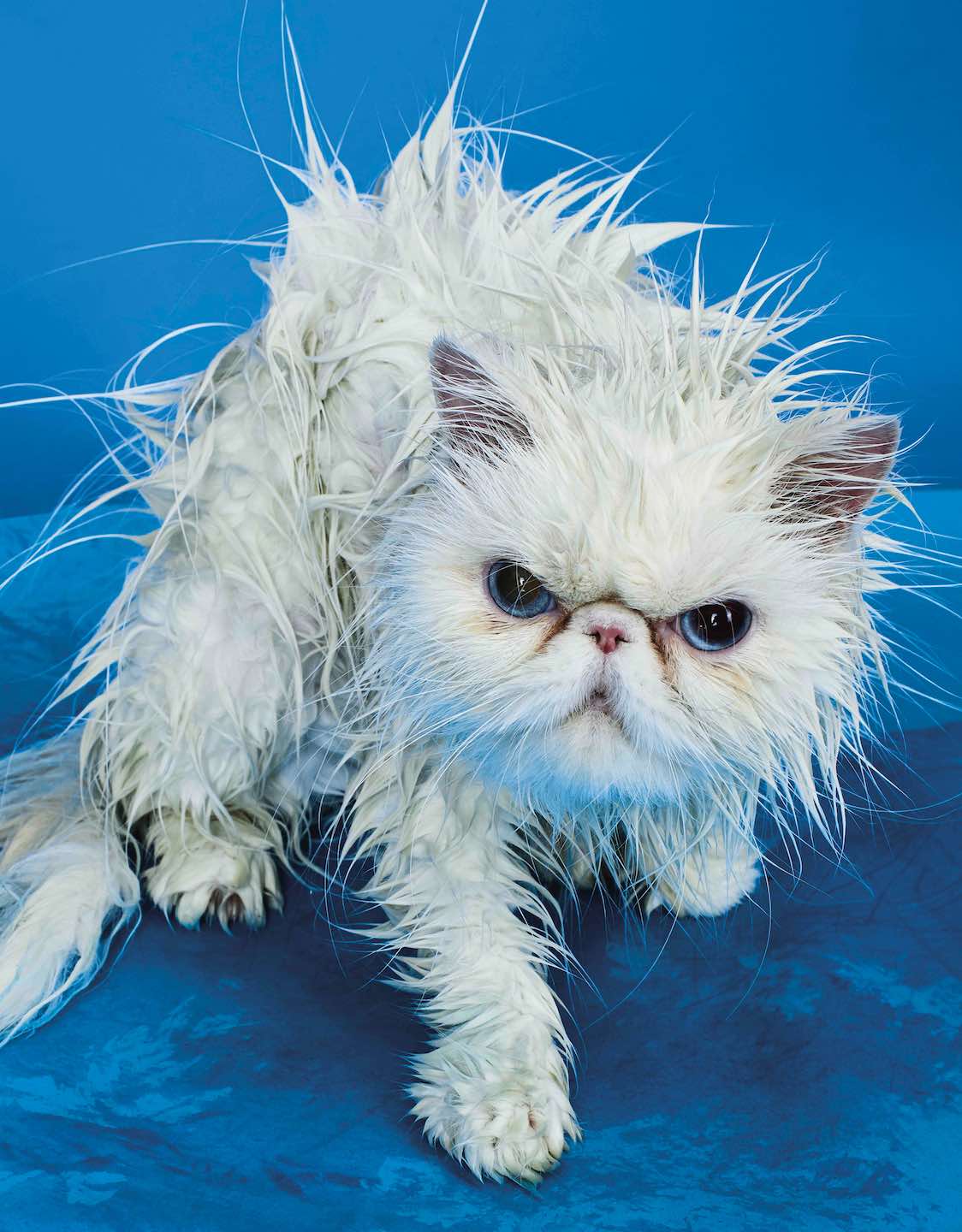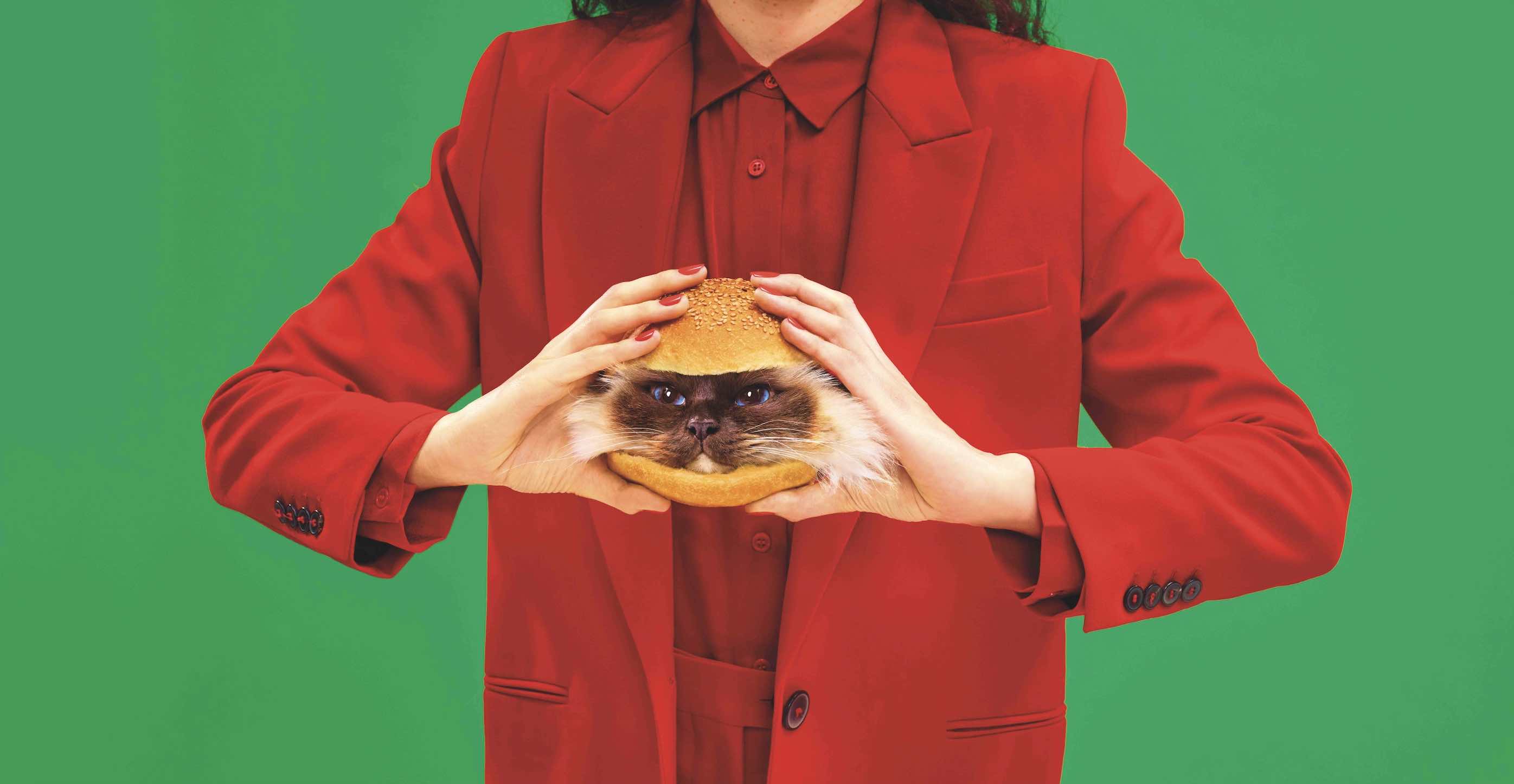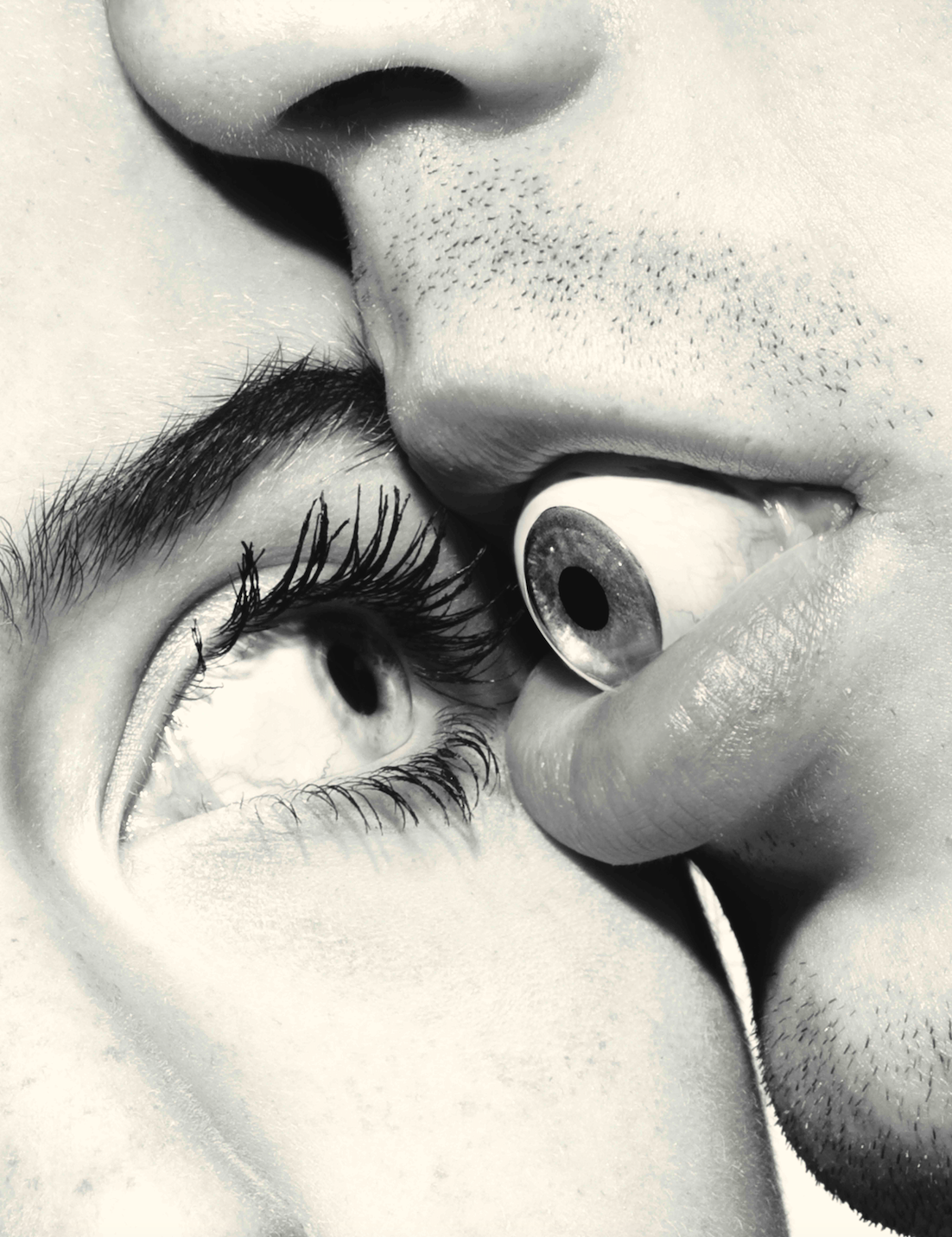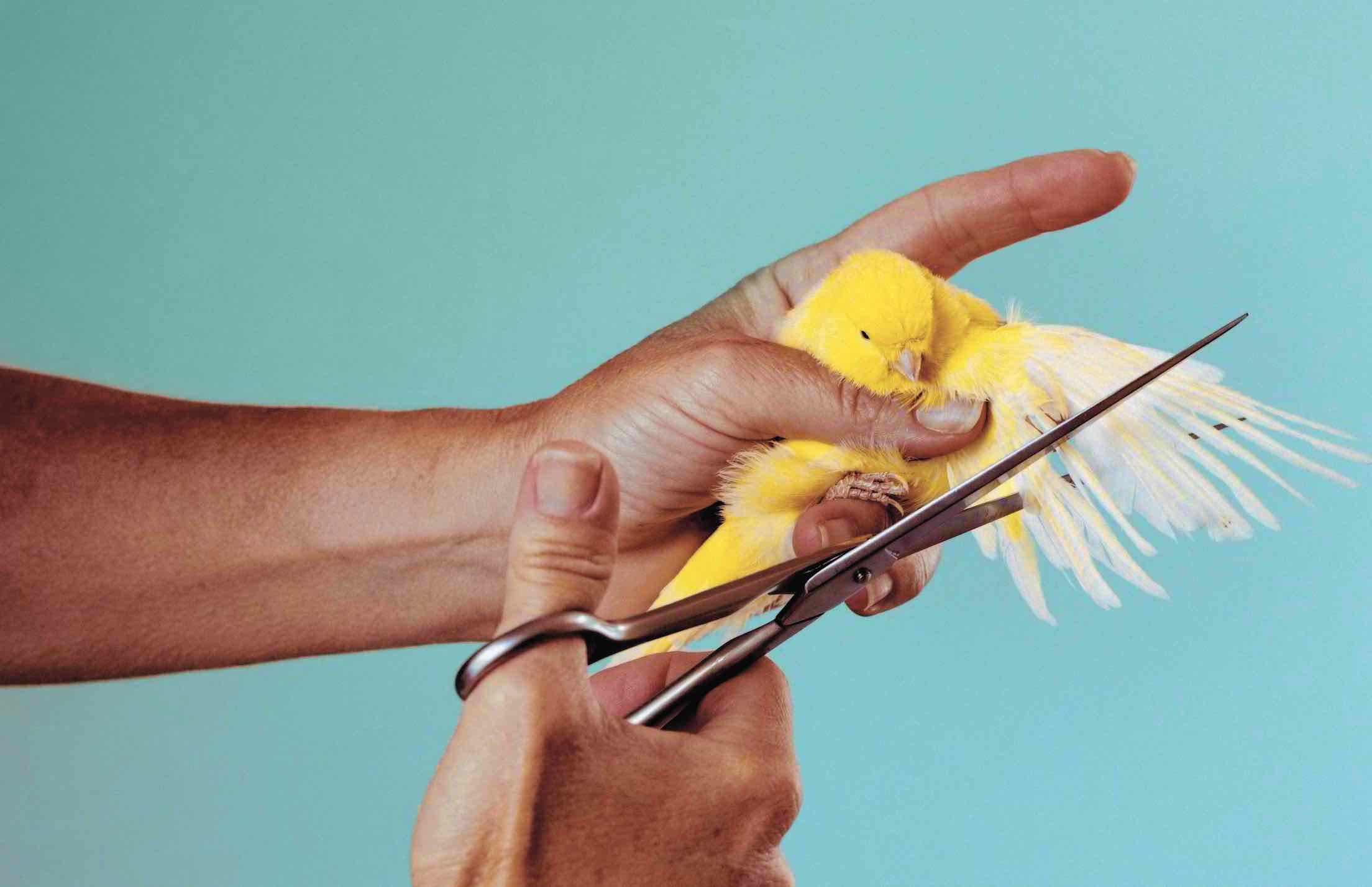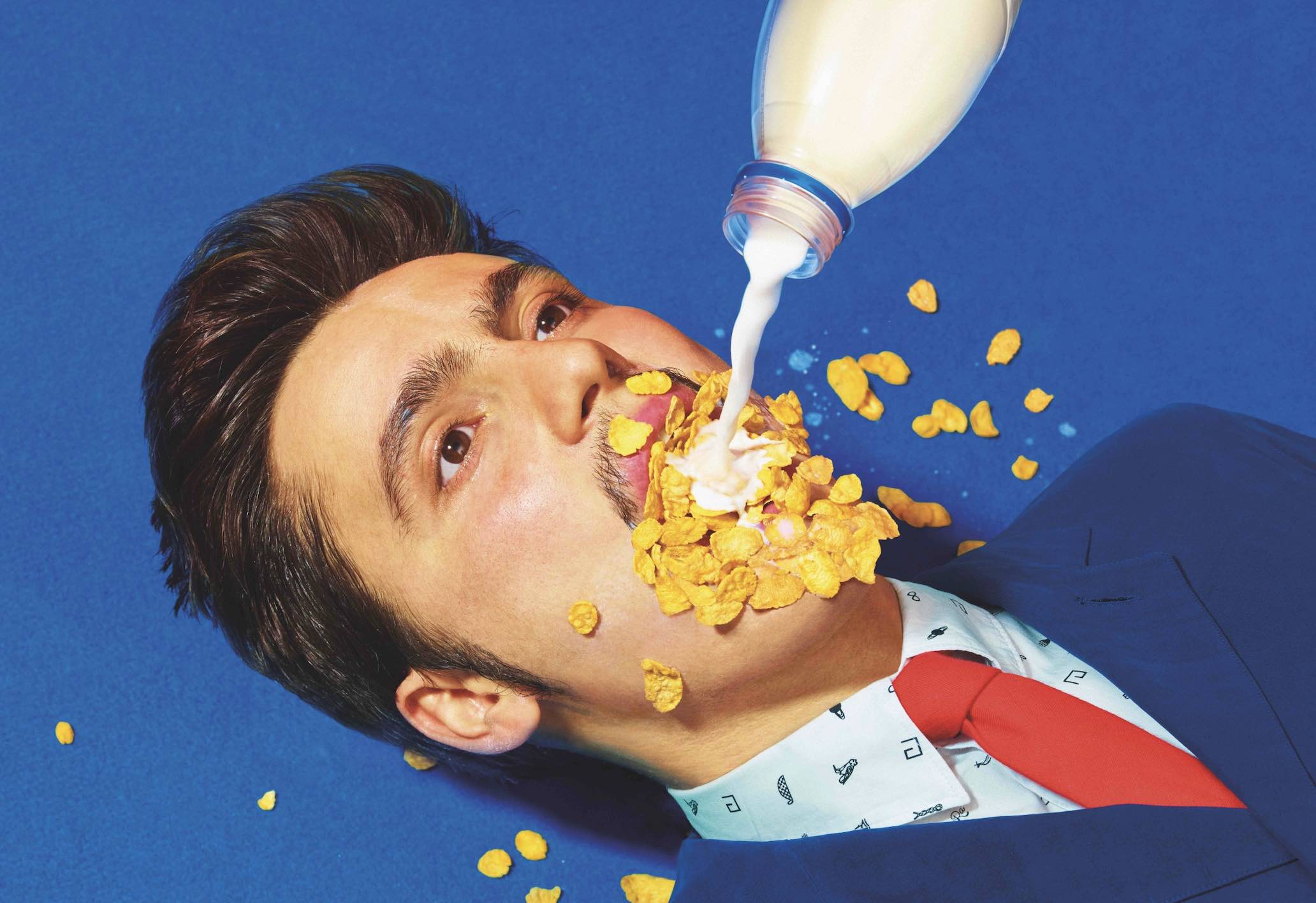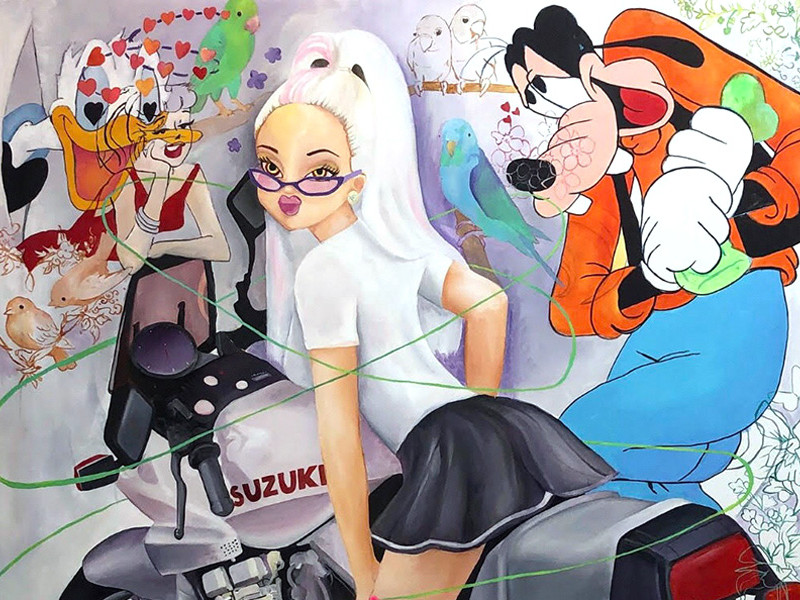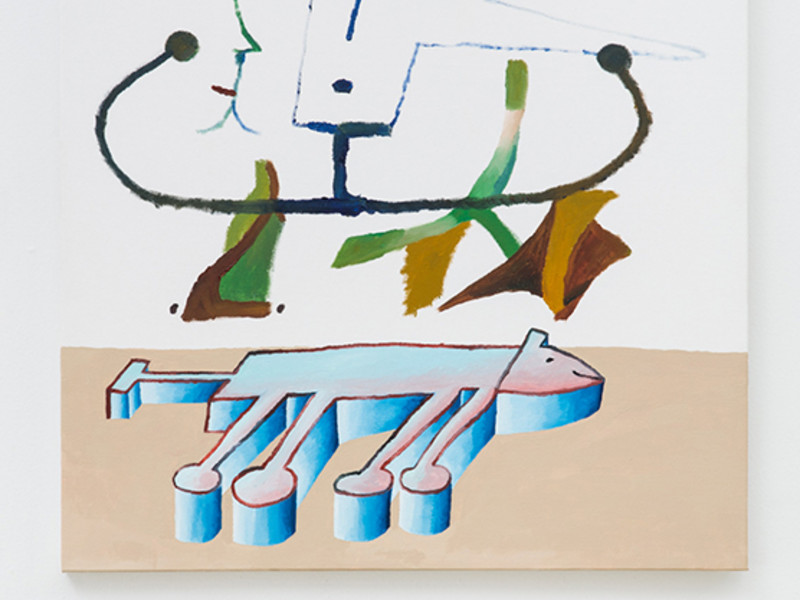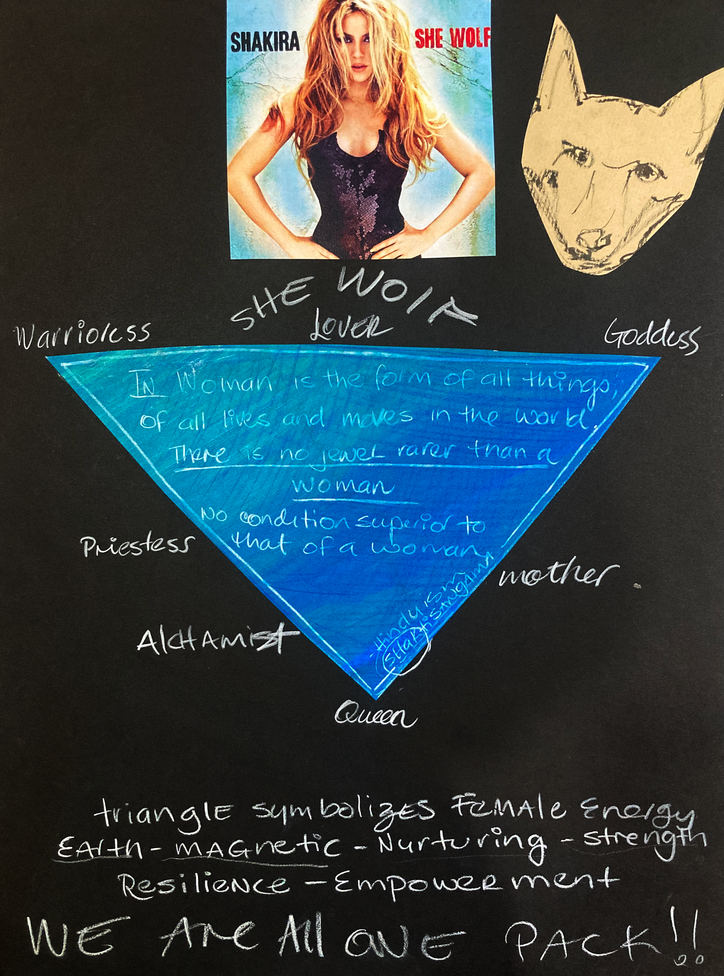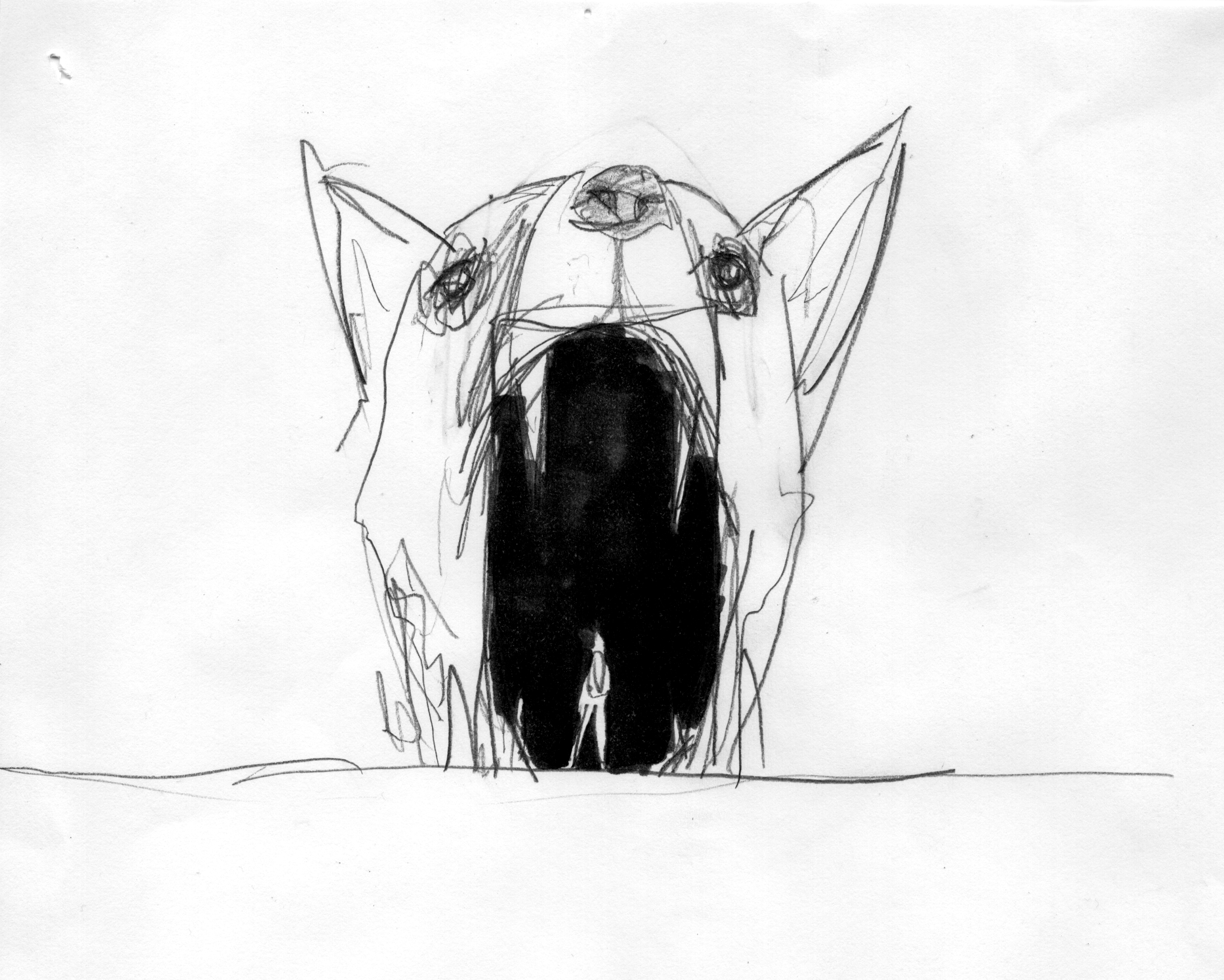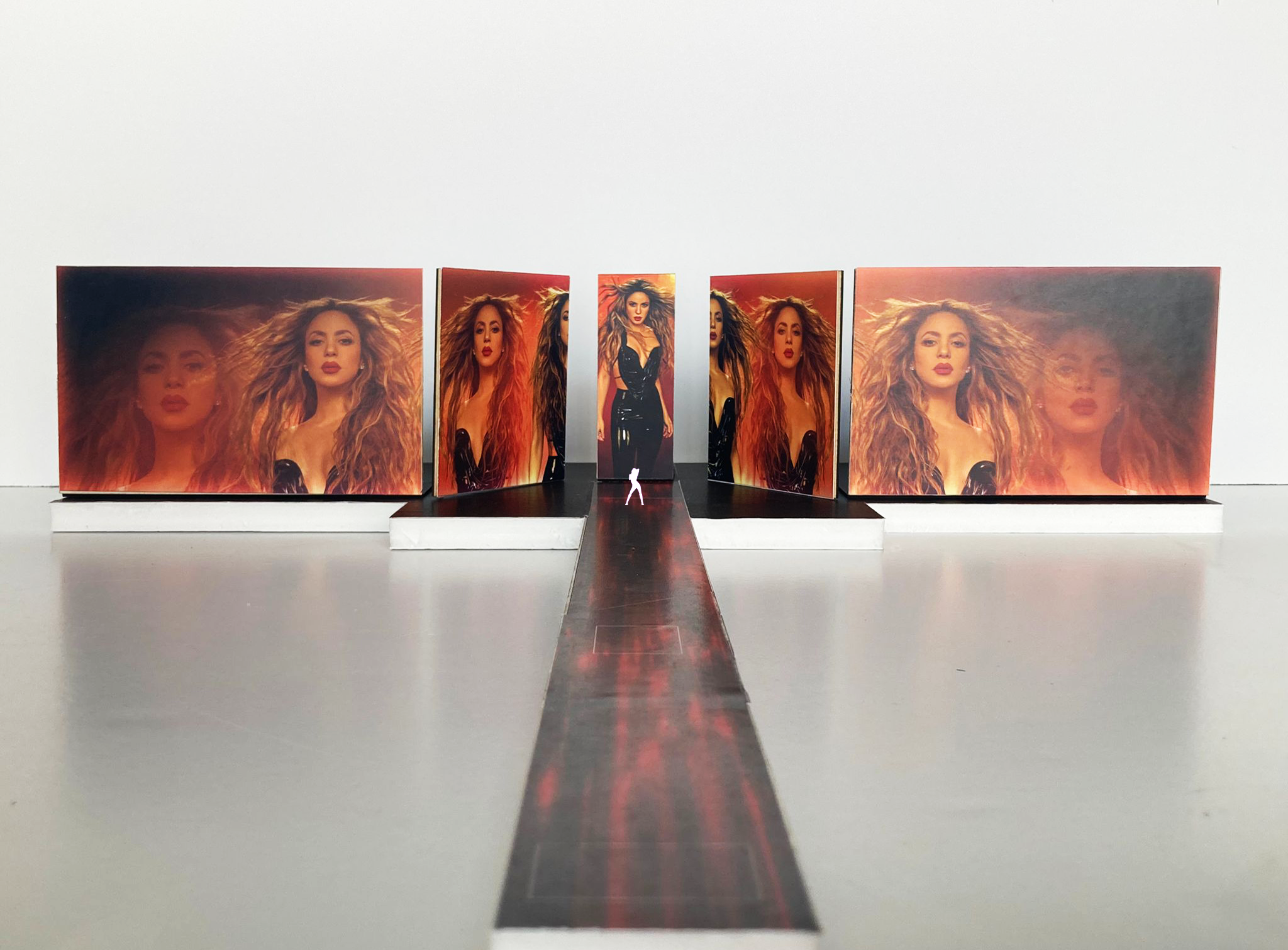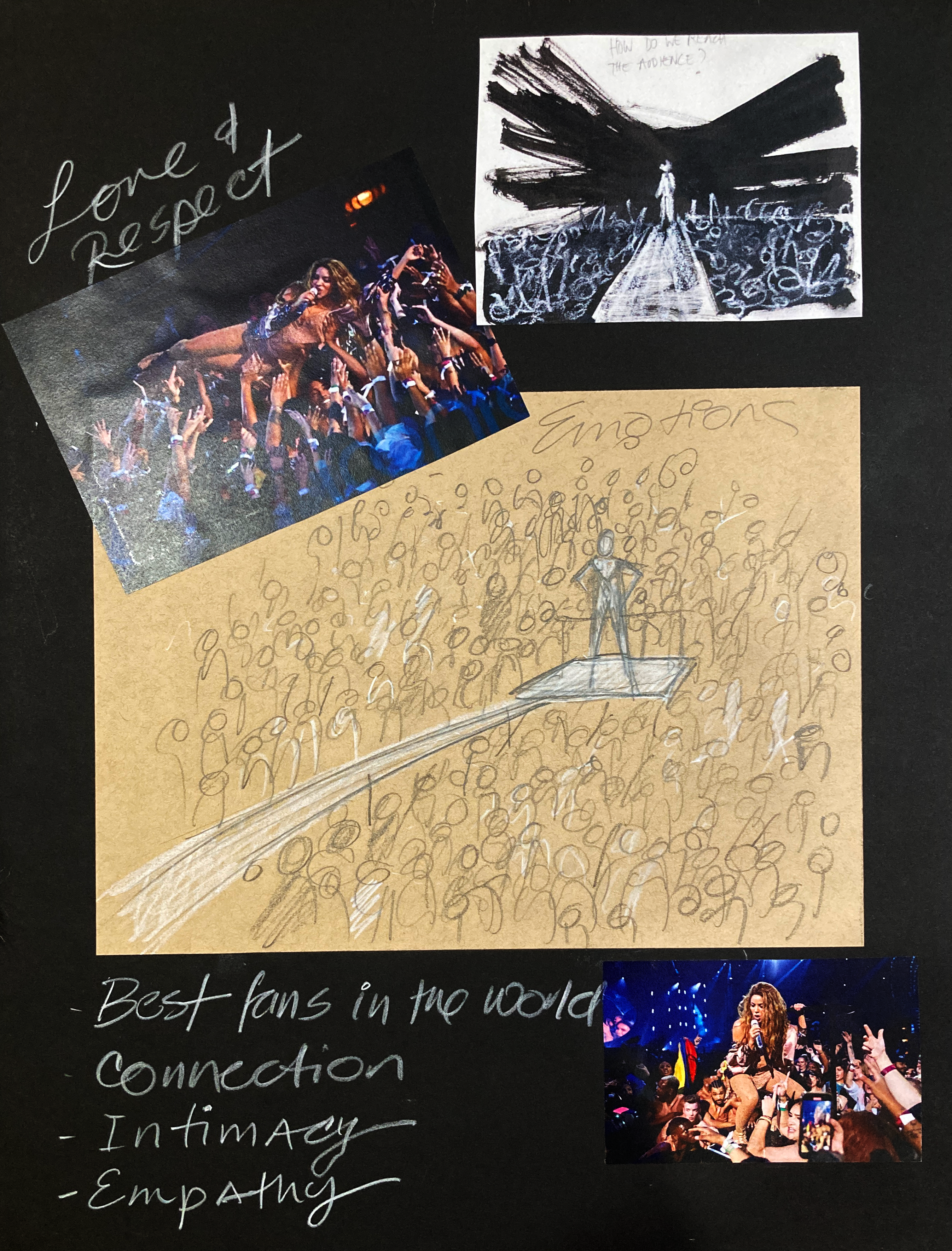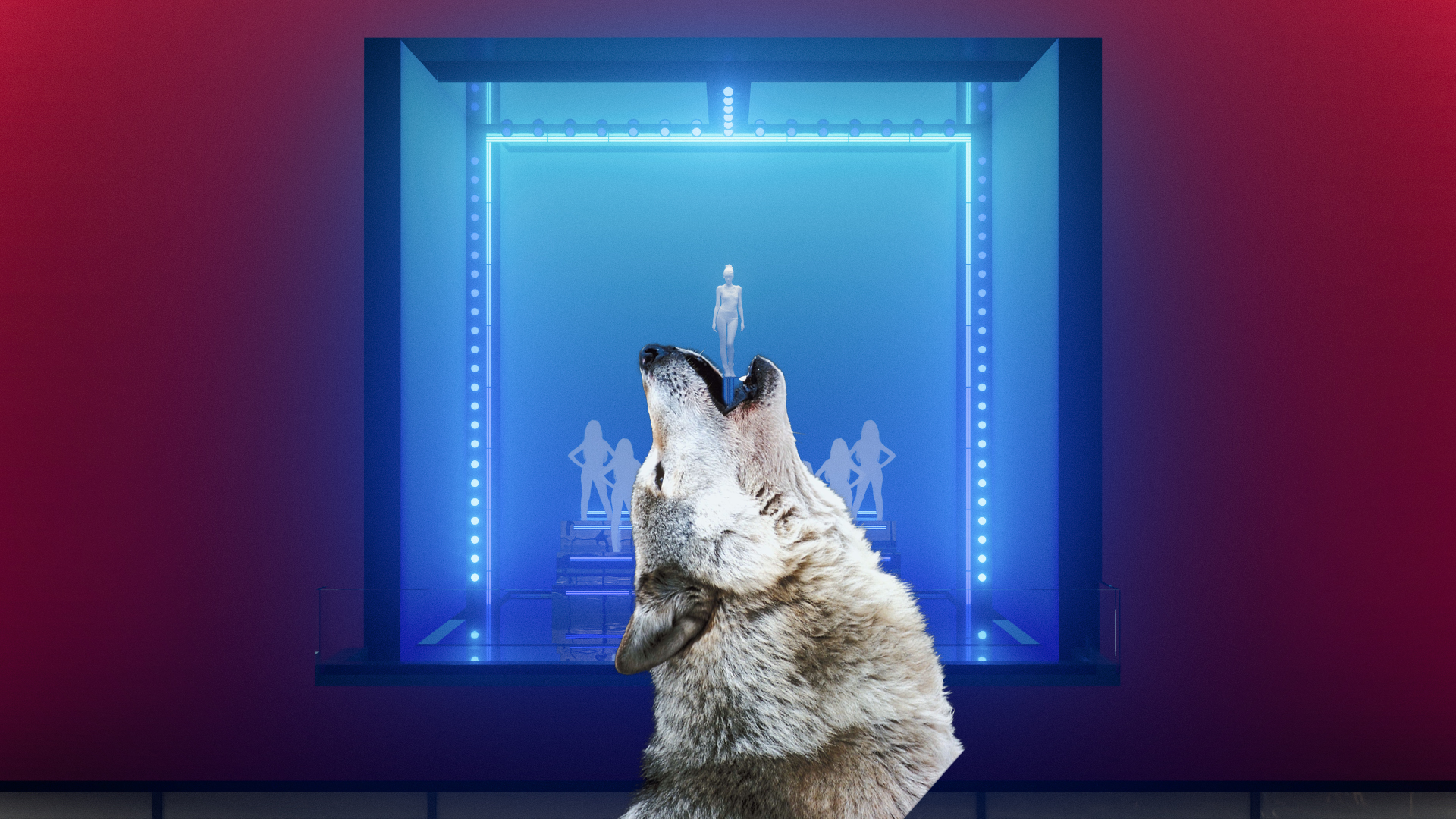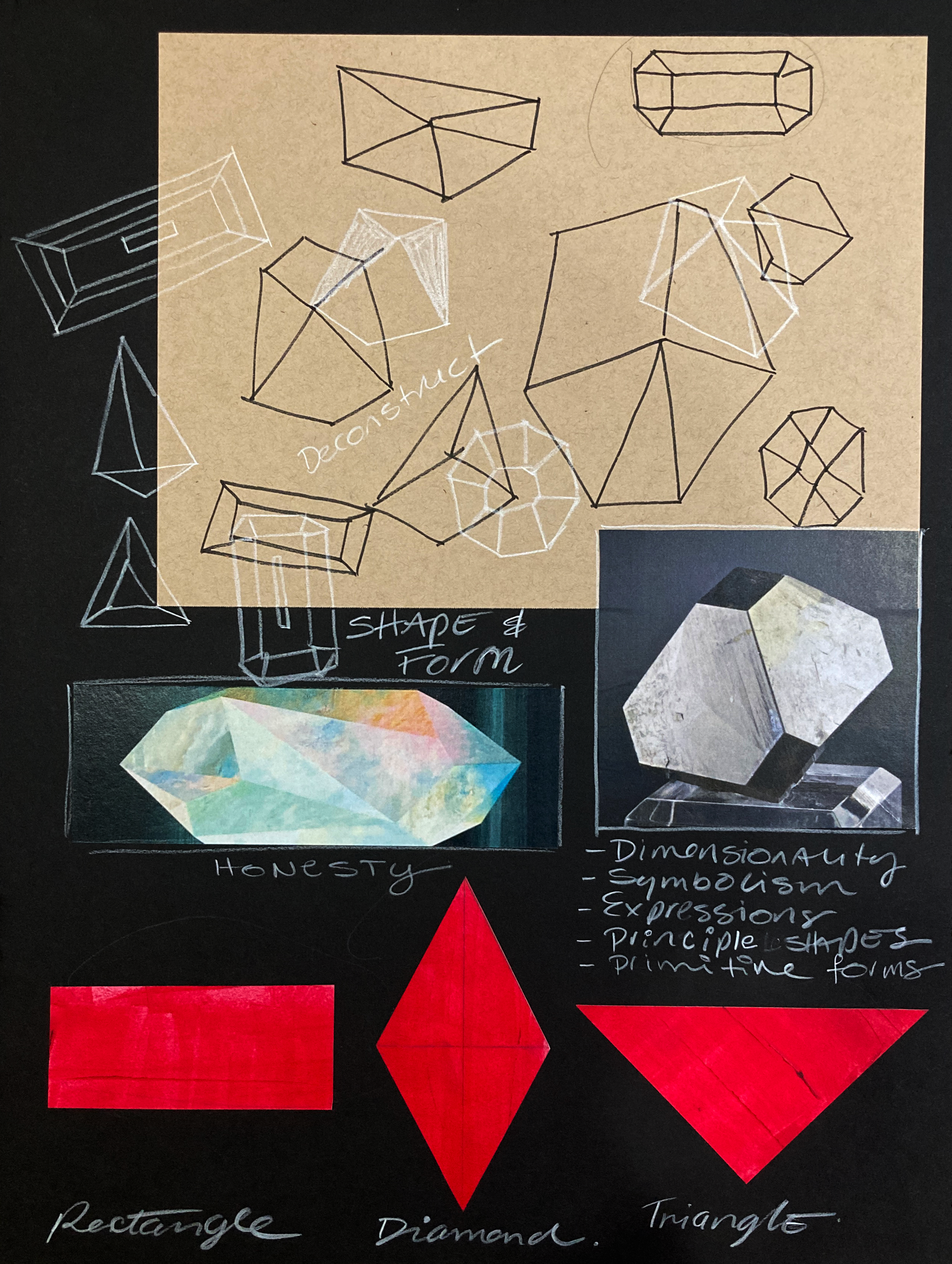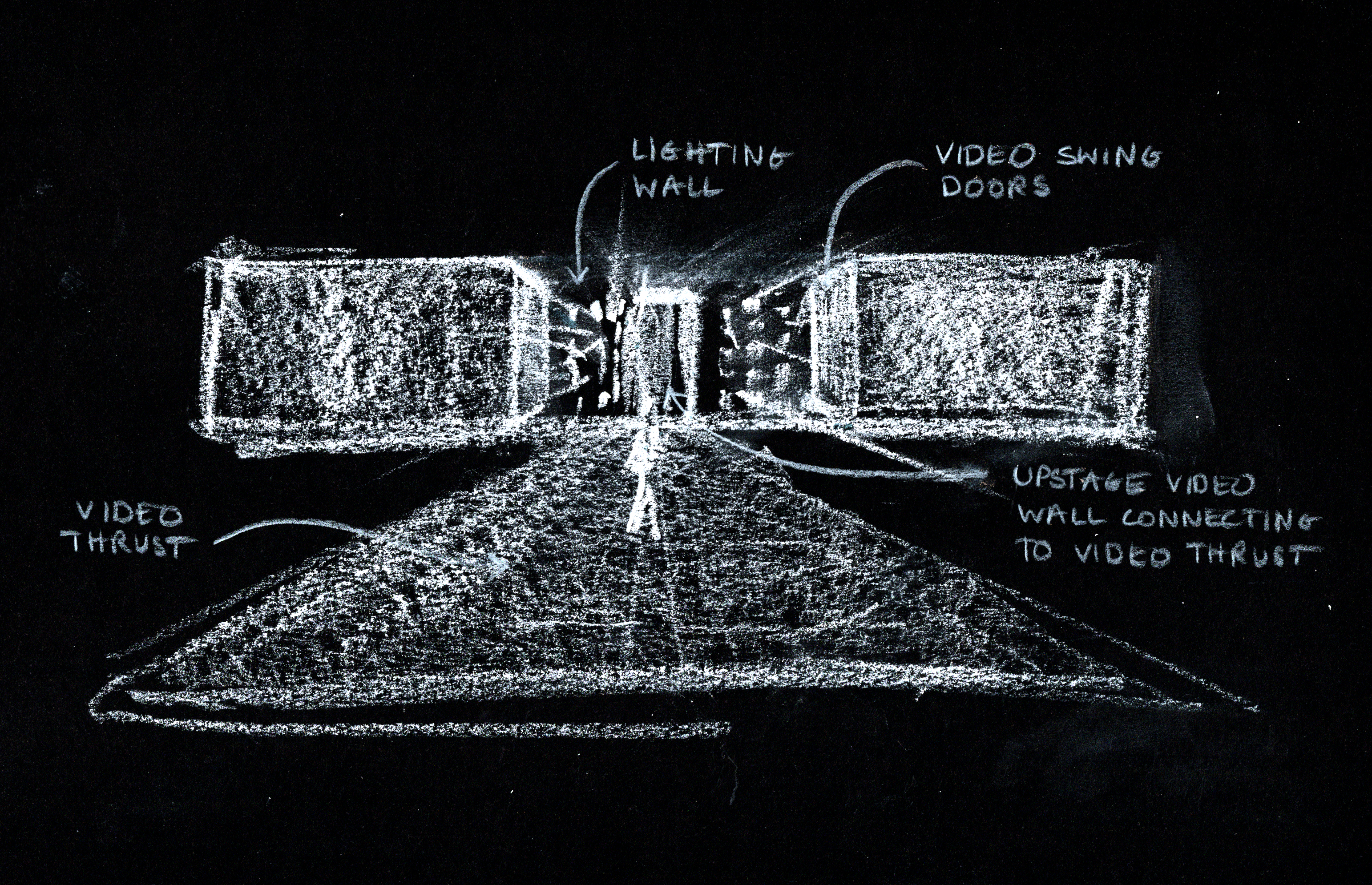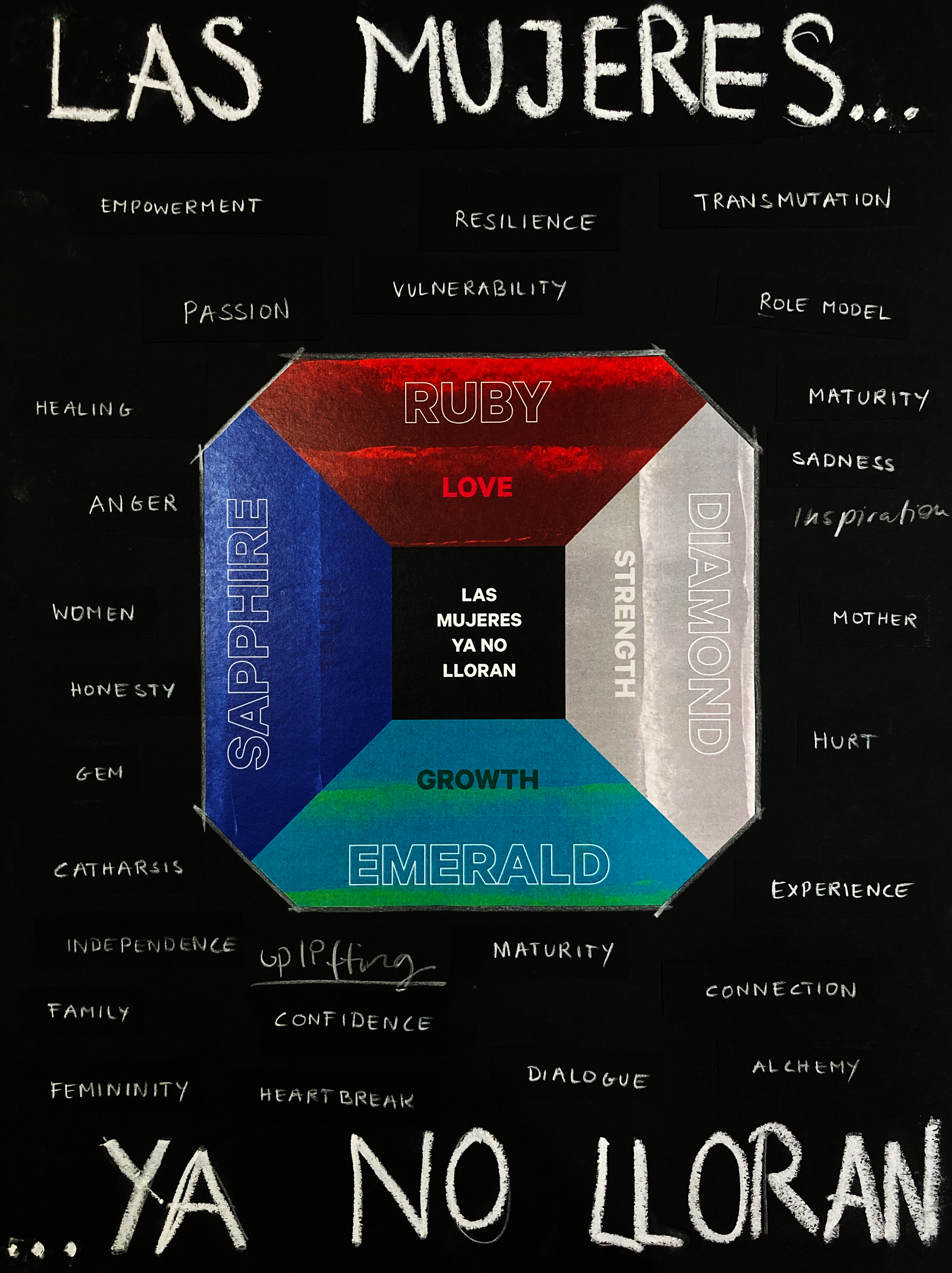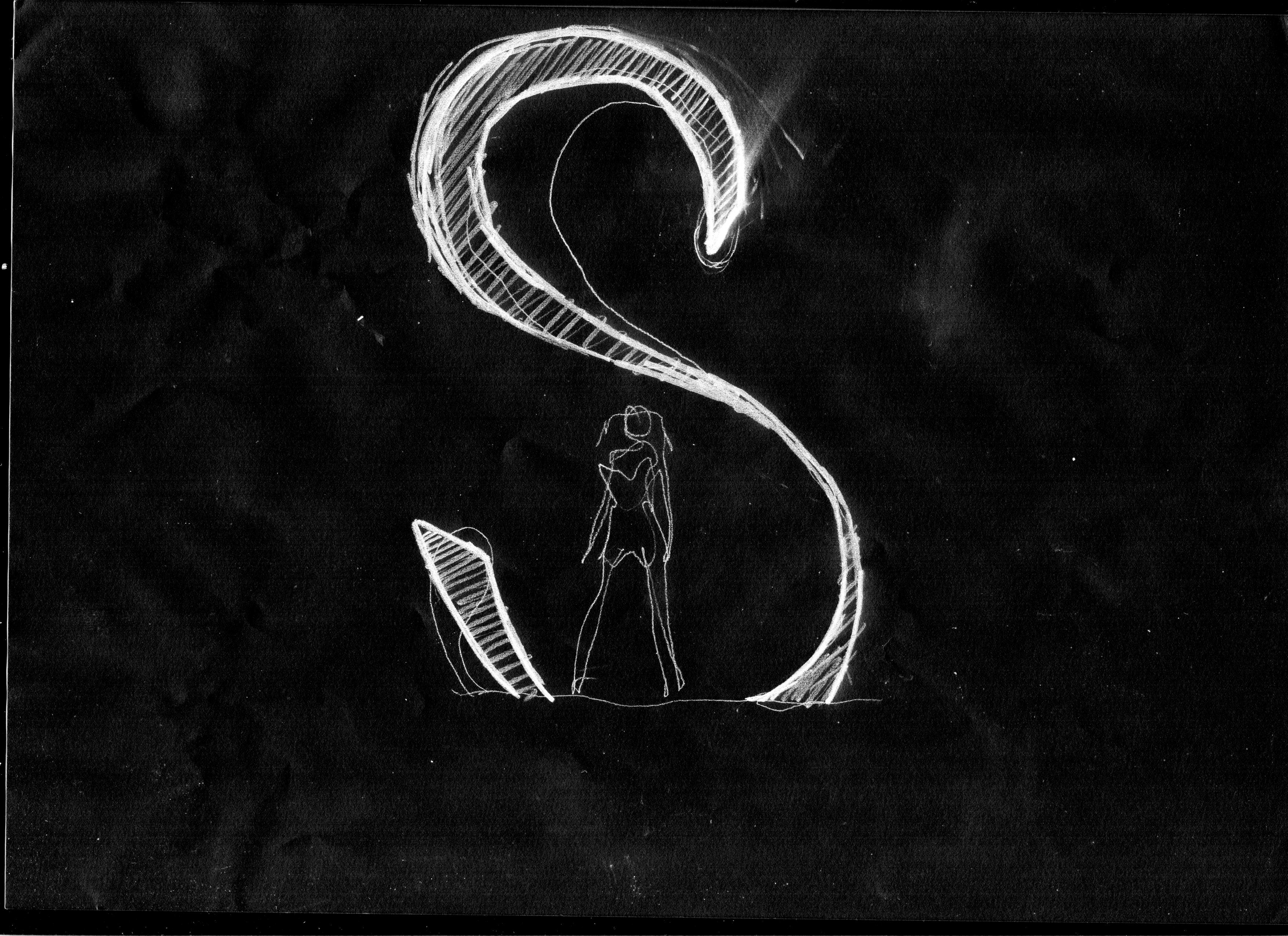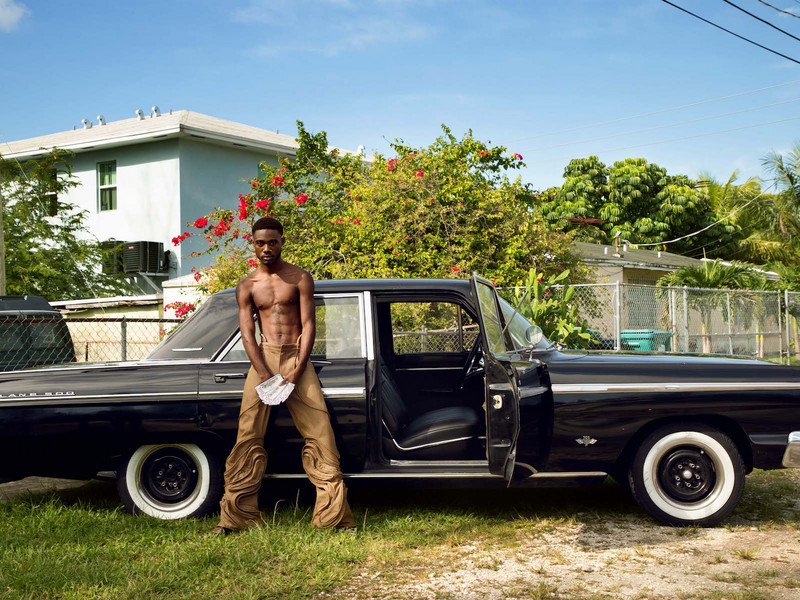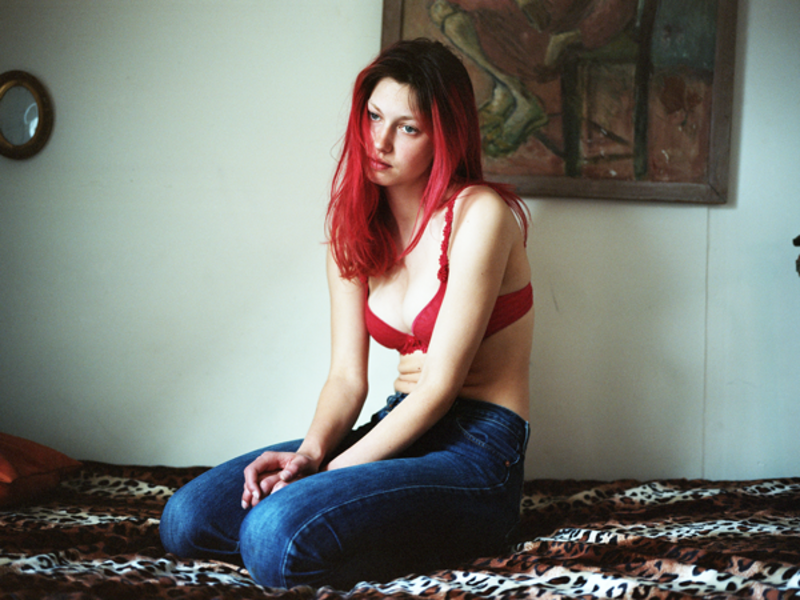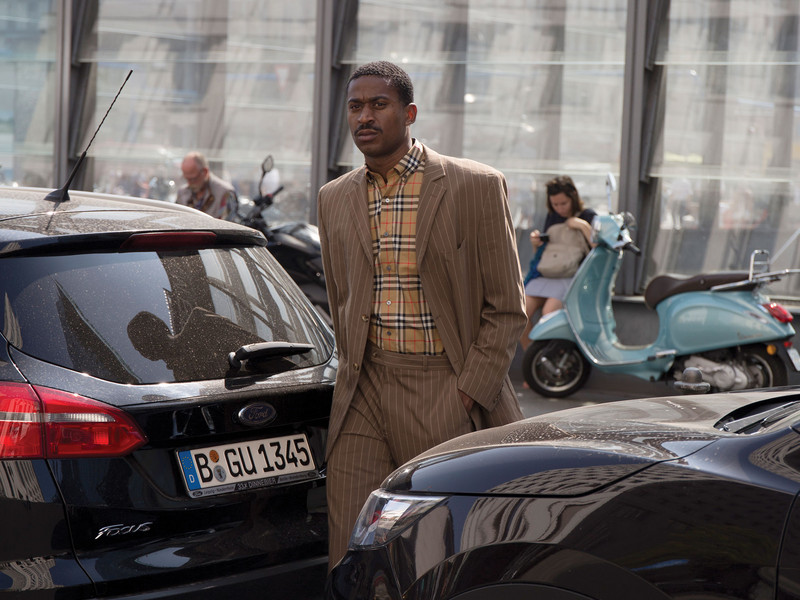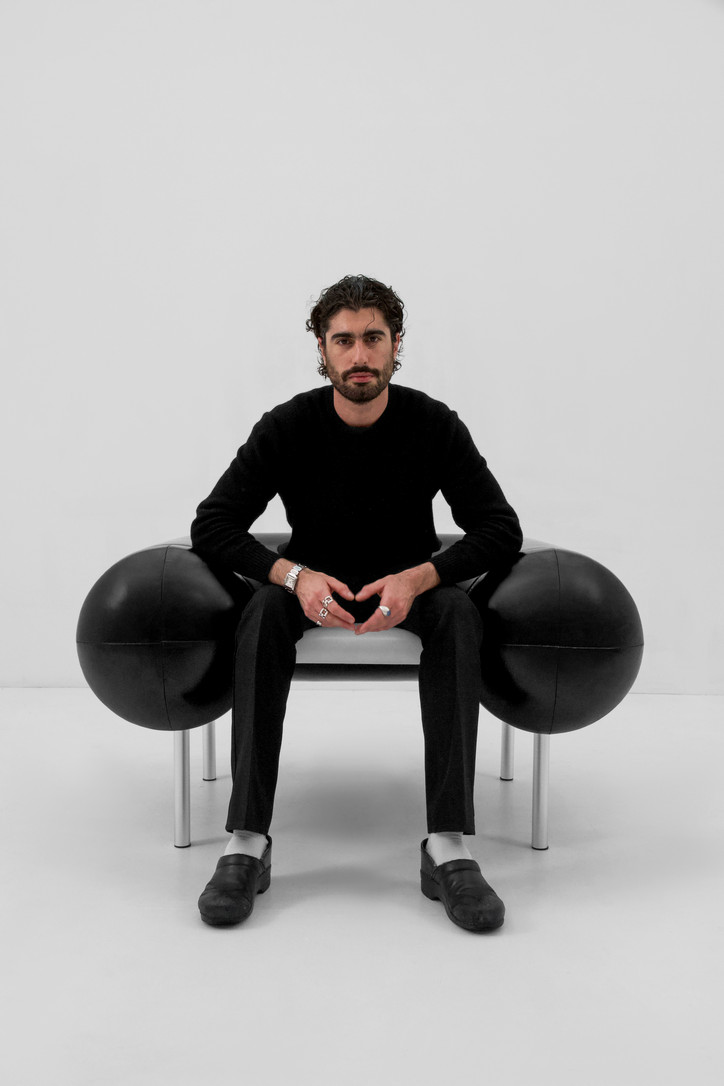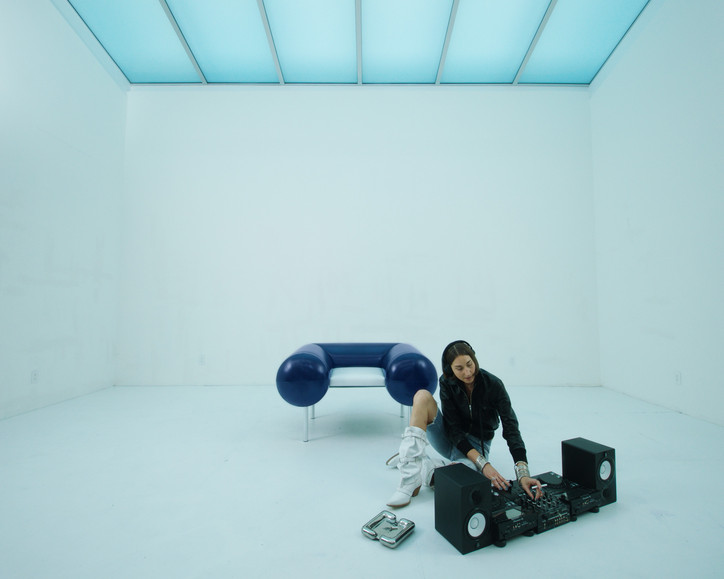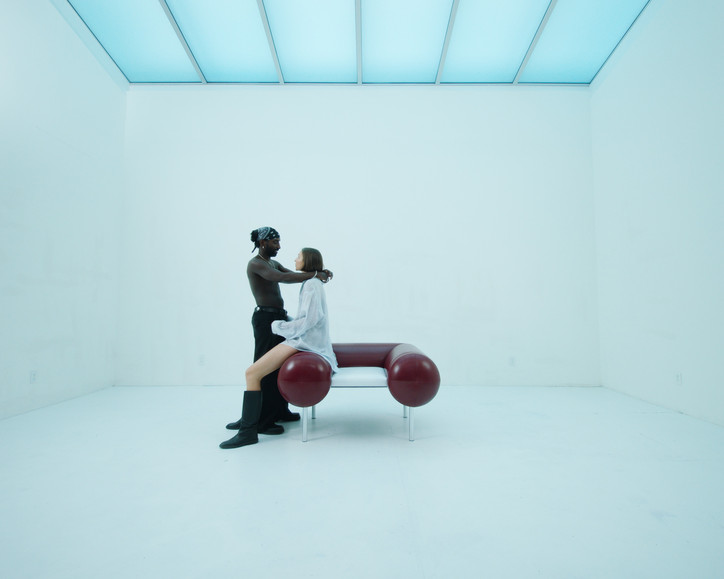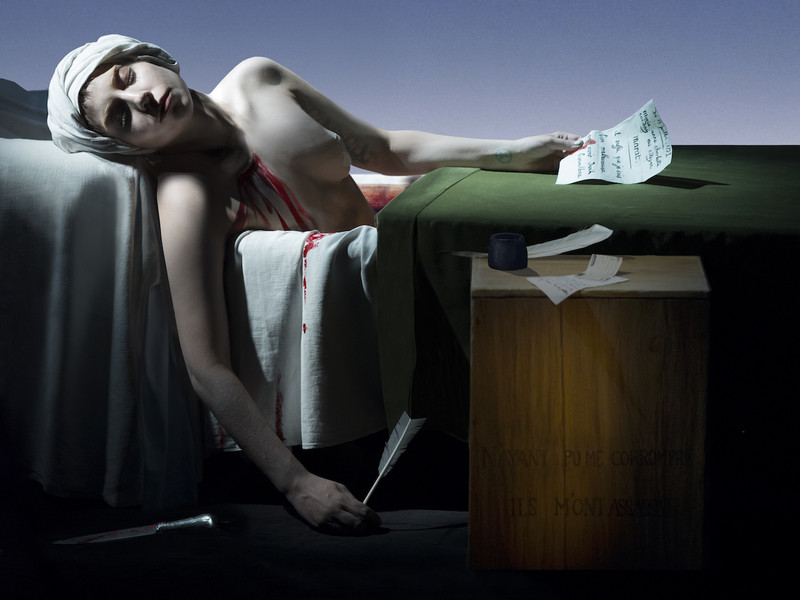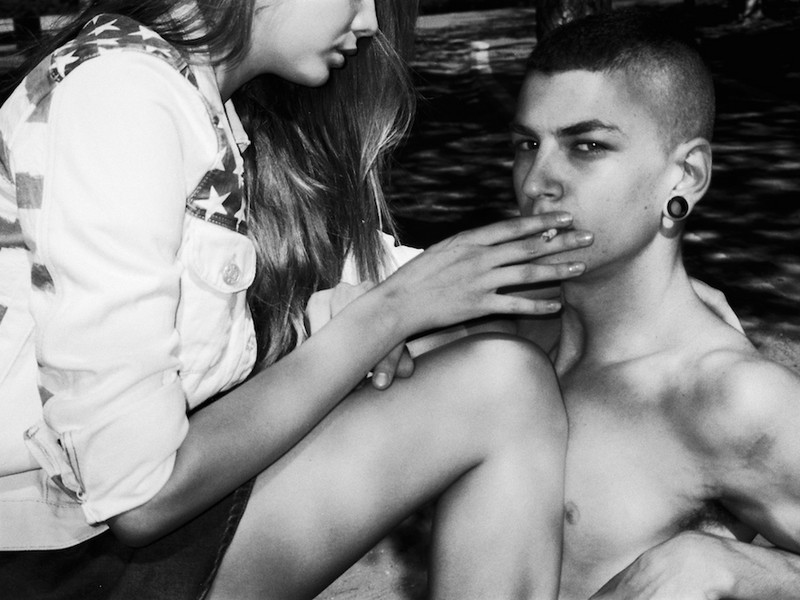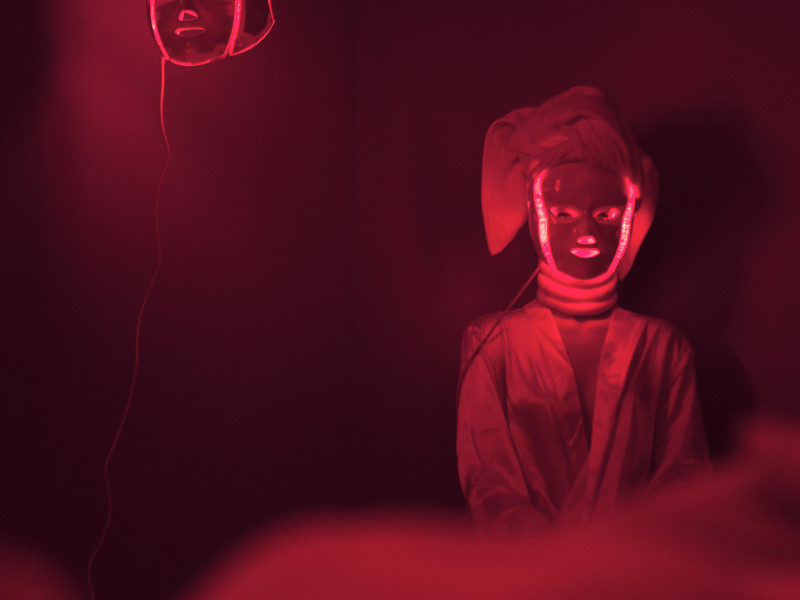Visionary Projects Finds Comfort in Community
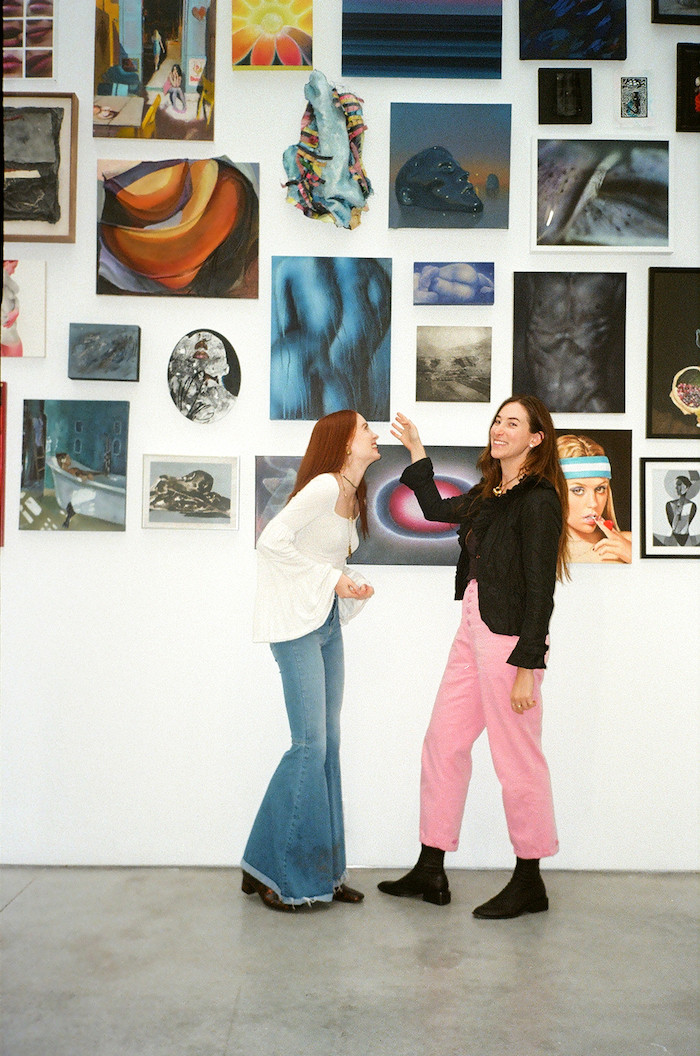
Barsky and Planit’s goal is not to completely alter the art world from the inside out — they recognize how it has molded and shaped them into the people they are today. Rather, they intend to take the art universe and make it a little cozier, inviting artists of all backgrounds and tenures into comfortable spaces where they feel accepted and encouraged to speak — or paint, or sculpt, or collage — from their unique perspectives.
office sat down with the creatives behind the platform to discuss demystifying the art world, how artists can best support each other, and more.
What led you on this journey? Haylee, how did you end up teaming up with Blayne to get where you are now?
Haylee: I initially started this project in January of 2018, so I'm celebrating my sixth anniversary. It was an idea that naturally came about as I had this little gallery space in Italy and I was always trying to figure out how to bring people together. It was right before the pandemic so it was a tough time that I had to figure out how to navigate alone — it's incredibly difficult to run something by yourself. I knew that I always wanted a partner. Then I met Blayne almost a year and a half ago. There are only very few people that you cross paths with in your life that you feel called to. I really believe in the red string theory. We met for the first time and everything that we were talking about just made sense. We didn't wanna say it to each other, but we telepathically knew that we were on the exact same page. It was the weirdest thing in the world. It was almost like we were just meant to happen and it felt supernatural. Now it feels like we're married. Without her, I wouldn't be where I am right now. It's been a wild year.
I know your current work is heavily involved in uplifting artists, but you both have connections to your own creativity. What inspires both of you day to day?
Haylee: I get inspiration from the energy of New York. It may be a stereotypical thing to say, but everybody here is just so driven. I don't think this could be done in any other city personally.
Blayne: I would consider myself a very inspired person. I find inspiration daily and even in the smallest things. I really like mornings. When it comes to furthering our visions and this community, we think about general inspiration and then inspiration concerning this project and what we're focused on growing. I think there's now inspiration that's kind of in motion. Momentum. The inspiration comes from the momentum, in a sense, watching our visions and ideas and people coming together and all the positivity that results from it. It creates this bubble of inspiration. Bringing these artists' dreams together and showcasing them in the ways we have — it's all pretty inspiring to both of us to watch that unfold.
Haylee: There's clearly a need for this in the art space because people are showing up. We also want to focus on the online network because the online platform is so global. New York is just a part of the network that we've cultivated and are actively cultivating. The artists come first and they always will. And that's how history has always been. Then the people who are inspired by them and everybody else just follows. So they're always going to come first in our mindset.
I know that you have hosted and then plan on continuing to host things in these non-traditional spaces. Why is that important to you both?
Blayne: I think ‘non-traditional’ doesn't always have to apply to the space. For us, it's more about taking what we firmly believe in, which is the power of bringing people together, and spotlighting that. I've always been really into public art and art that's more accessible. Art is a form of expression but a lot of people aren't really taught to express themselves in that way. My philosophy is that everyone is inherently creative. For us, this isn't about a trend, but it's just important for us in whatever we do. That's why I said it's not about the space, it's about creating an experience where art feels approachable, accessible, and inclusive. We're giving art different kinds of artists and giving different kinds of talent these opportunities. So I think that's what is at the forefront: creating experiences that aren't stale and that are approachable. Diversity is something we're always proud of within our community as well.
There are so many different kinds of people in New York, which is half of the reason it's so inspiring. At least in the art world, the events I was going to and certain things I was going to, I was seeing a huge lack of diversity. I would go to these events and there would be all these people that kind of looked the same and seemed the same. I'm sure they're all great people; it just, for me, felt a little like it was missing something. When we curate shows, it's super important for us to, bring in people of all different backgrounds.
Haylee: There's definitely a beauty behind demystifying the art world. We truly do not care about any other factors as long as you have the talent, the merit, and the drive. We also want to continue to bring people together — some could be very established in their careers and we connect them with somebody who this may be their very first show. Everybody truly falls under the same realm of existence in our space. So it's really fun to see all of that come together and to curate that. And we also don't come from traditional backgrounds ourselves. I come from a background in fashion and she comes from branding.
Blayne: I agree. I also want to add that we, by no means, are trying to take down the traditional art industry. We fully integrate it into what we do as well. It's just about that more non-traditional approach. We still acknowledge that there is an institution and galleries that exist.
Haylee: Right; I would say we definitely acknowledge, compliment, and celebrate the traditional art world, just through a different approach. Blayne: This non-traditional approach can also be accepted in traditional spaces and that's something we want to see more of.
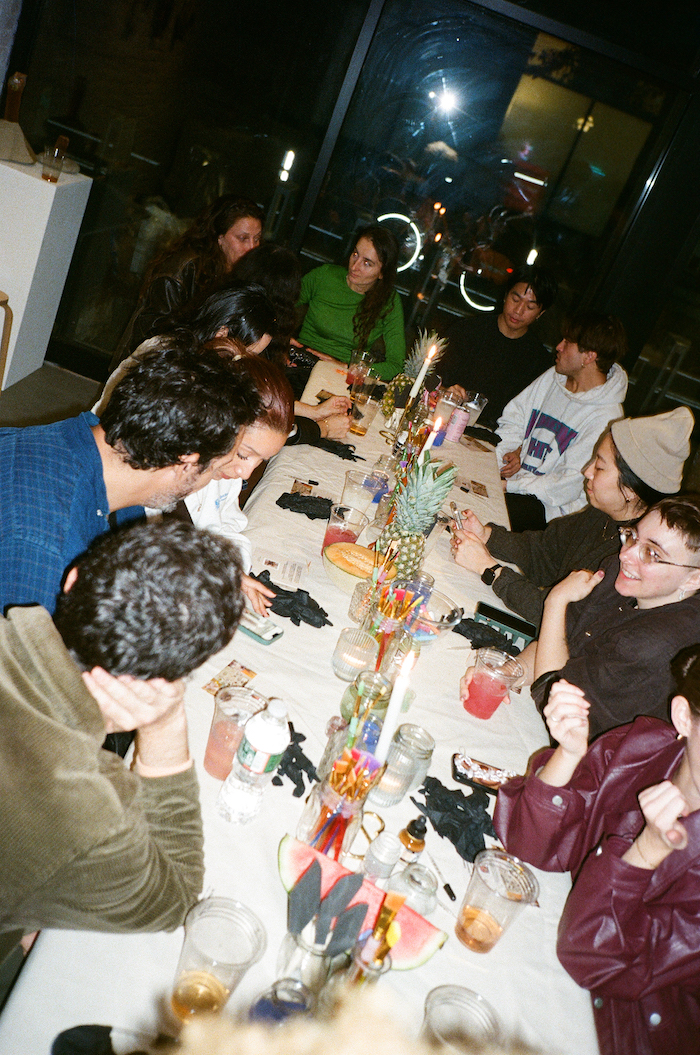
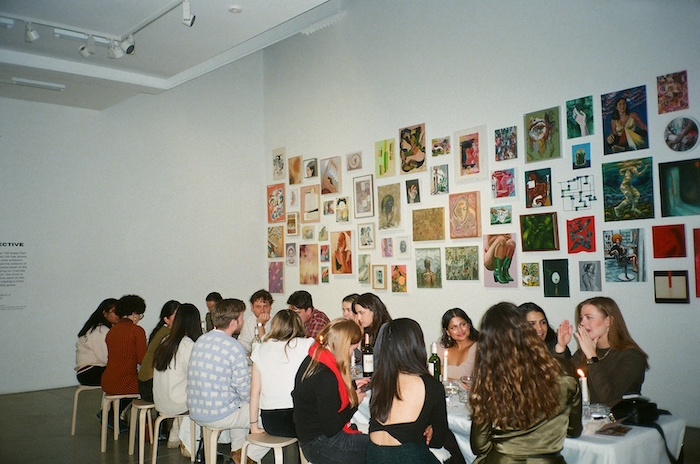
I think connecting more experienced artists with younger or lesser practiced artists is the beauty of your platform. What are some of the largest barriers to entry in the art realm that you want to combat with your approach?
Haylee: I think there's not one single particular barrier of entry, but a lot of people just don't know where to start and it can be a very overwhelming space to navigate. So having public opportunities and making that as known as we possibly can with our network is important. There's only so much we can do and we have the power of being able to do. As much as everything has grown and changed in such a positive light, there's still so much work to be done. I would say for somebody who doesn't know where to start, just doing your due diligence — research and being on social media and just really understanding the landscape and cultural aspects of the art world — will help.
Blayne: I would add that how we're actually addressing that is through our membership, Tableau. We do an industry insight panel and we've curated it super intentionally. We bring really incredible, established art world professionals from different sectors of the art world in and host them in a conversation — kind of like this one. Our members and people in the community can get insight and access from the minds of people that are running the show, from the director of an art gallery, to an artist-run gallery, to a giant publishing house in Europe. So that's one method that we both felt was a realistic way to demystify.
Haylee: Community is how you get to where you need to be. So that's why we're trying to build this community more intentionally. It's very inclusive and everybody's invited.
Blayne: And even though a lot of it is about who you know, you can create that community for yourself. If you're putting yourself out there, it doesn't matter where in the world you are. There are so many different ways to approach it and we're also trying to teach people how to use those tools as well.
It sounds like the biggest thing that Tableau grants people is access. There are a lot of people who want to go after a creative endeavor and they don't do so because they don't have access to these tools or resources. So fostering these conversations and creating these spaces is powerful. I know that you two have talked a lot about connecting artists to people who can advise them along their path. But how do you think that artists can best support other artists, in a very non-competitive way, and foster a more inclusive industry?
Blayne: I see that all the time within our community. It's so cool, especially as someone who's an artist myself. Everyone has different philosophies, so I don't necessarily see other artists as competition because we're different people making different things. And if a gallery is not a fit for me, maybe it would be a fit for you. I think it comes down to mindset. I think an artist who doesn't want anything to do with other artists and sees them as competitive wouldn't be attracted to our community, perhaps. Hayley and I recognize that community isn't for everyone and it's not what everyone's looking for. But we see the power of connection.
I'm curious about some of the artists that VP works with — what really stands out to you when you see someone's work? I loved everything that was in the last exhibition, but I thought the beauty of it was that everything was so different.
Haylee: One of the bigger philosophies behind the platform is celebrating the idea of storytelling. There's so much power in what somebody has to say, not just about themselves, but about the world that we live in. Blayne and I have a very similar visual eye. We literally look at the same piece of art and have the exact same feeling.
Blayne: We've never disagreed [laughs].
Haylee: When curating, I'm personally a big fan lately of the abstract figurative movement just because I see myself in it. But a lot of people really love expressionism because it's more timeless.
What are your hopes for the platform as it grows?
Blayne: We both have agreed that we want to amplify our mission. We want to expand the community very intentionally. And we're also thinking about what events we can host to support people even more. I think there's so much opportunity to support artists and give them resources so that's what we're currently thinking about. How can we take what we've built and expand upon it? We want to help more people get started in the art world. And even artists, by the way, that are doing the thing, don't know what they're doing. I'm not saying that they're not intentional. I'm just saying there are a lot of people whom things are just happening for. And, of course, you can point to why it's happening for them, but a lot of them are figuring it out as they go. We want to host more exhibitions as well. Partnerships are going to be a really big theme in the upcoming year — so there's a lot of opportunity on the horizon.
Visionary Projects’ next event is a supper series in honor of their 2nd-year anniversary, hosting live artists who will create pieces for sale that evening, on February 24th.
